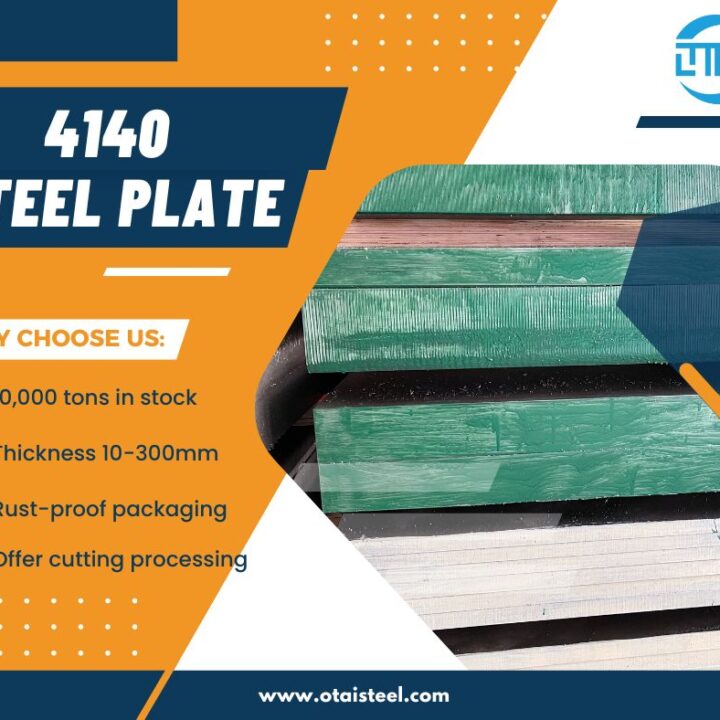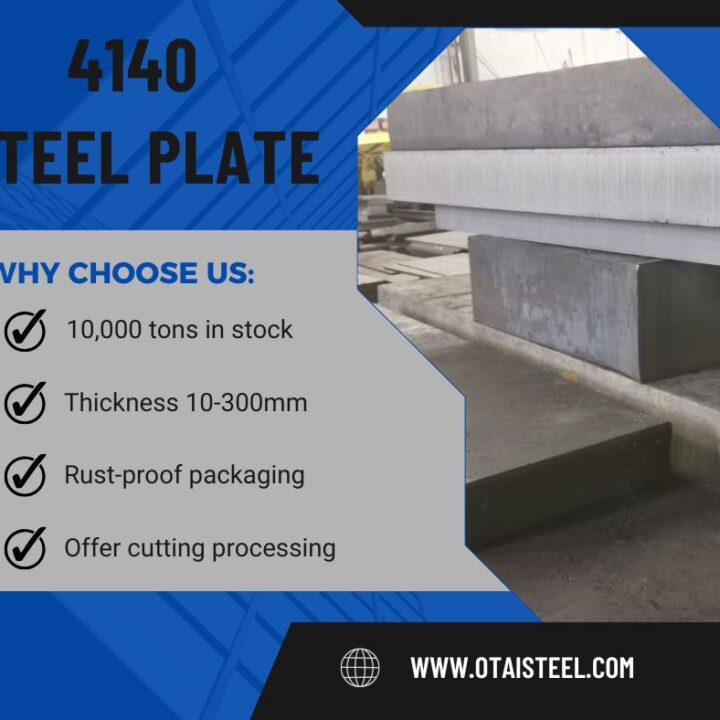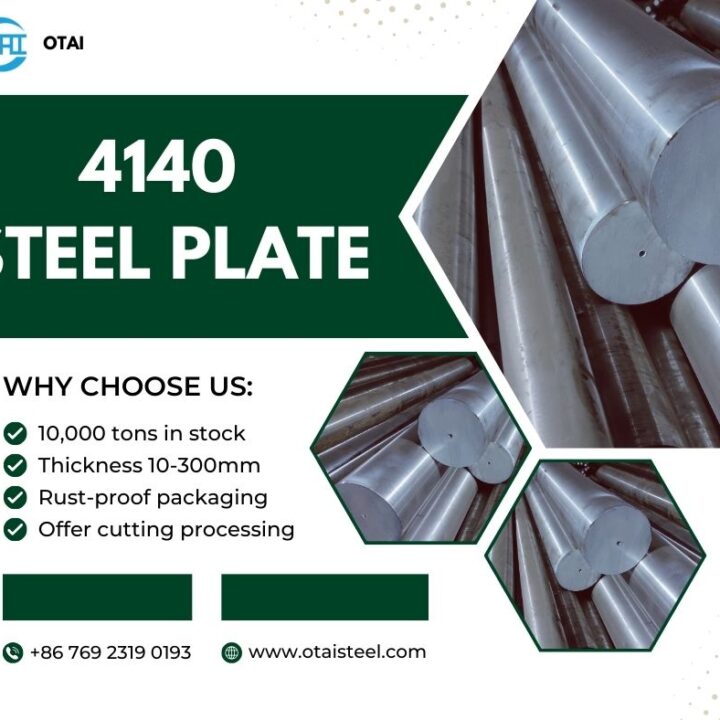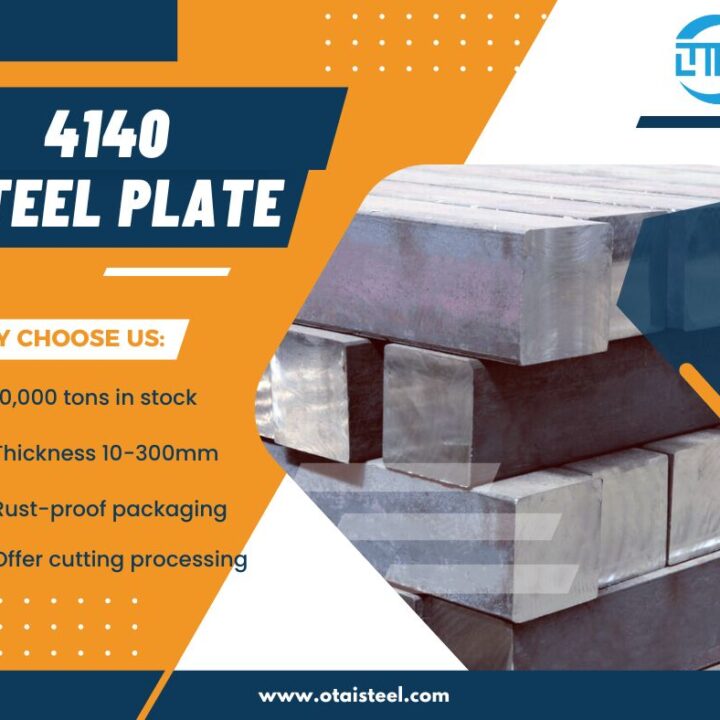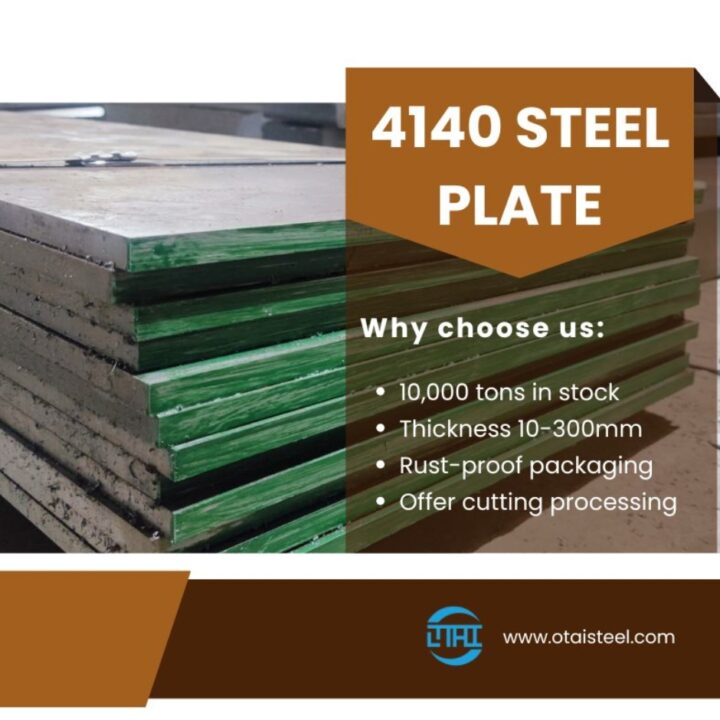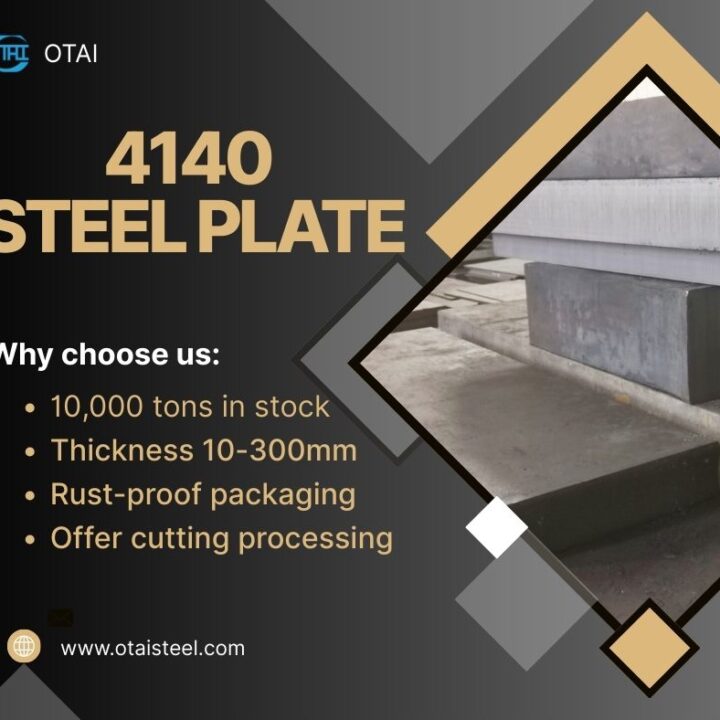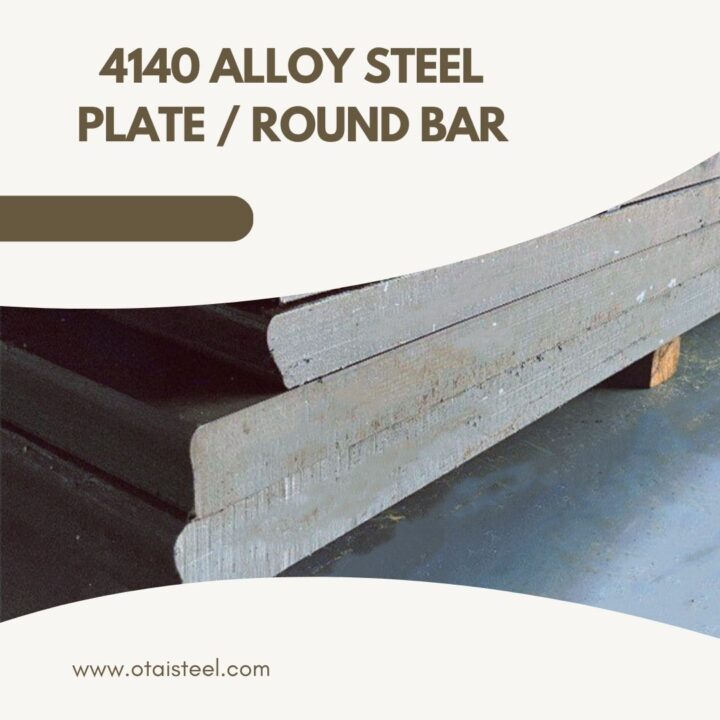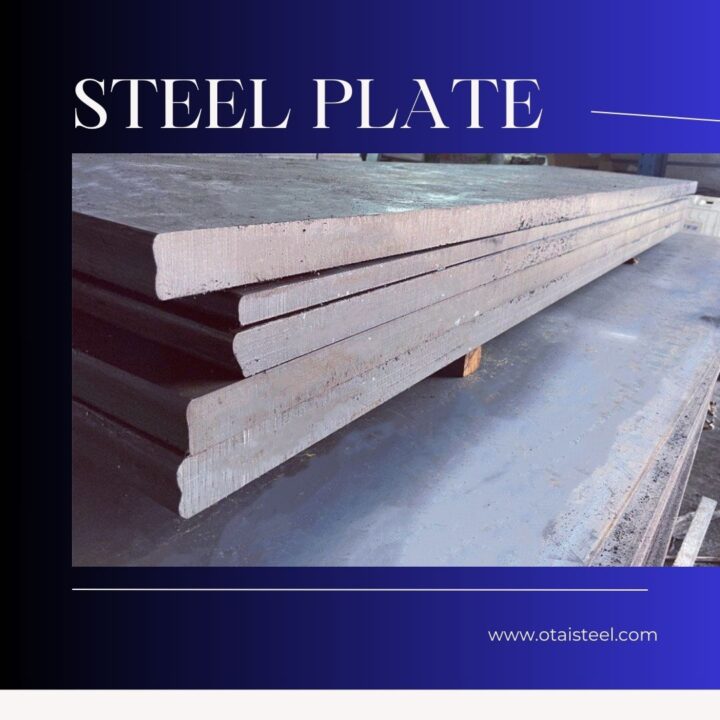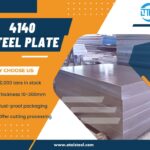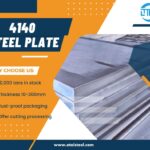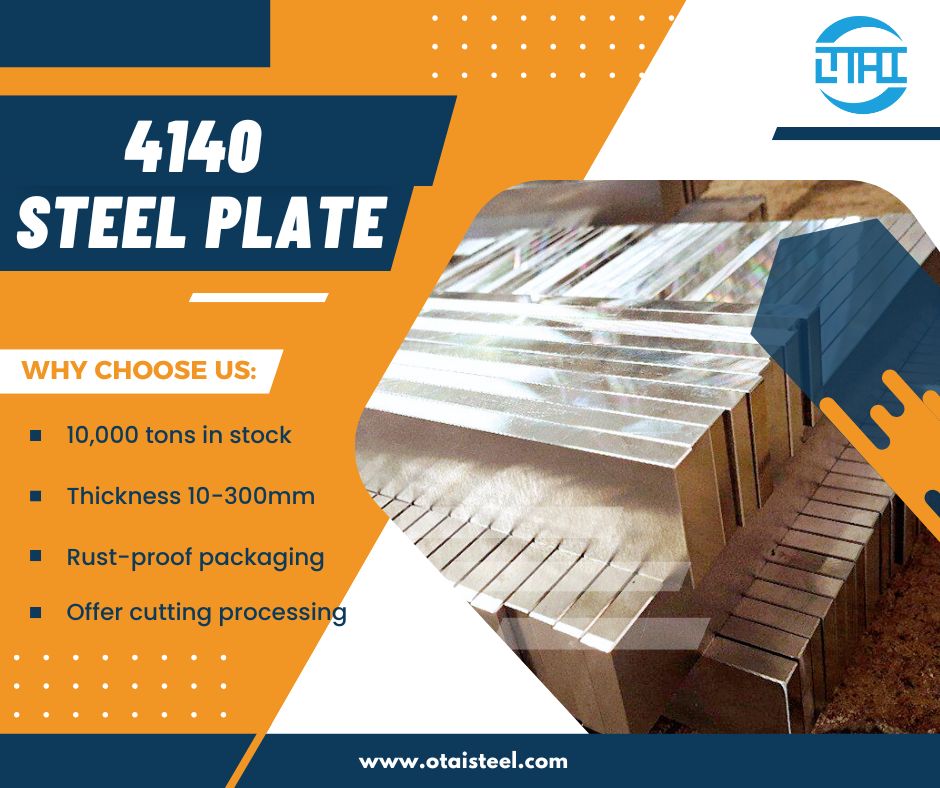 4140 Steel Specifications: What You Really Need to Know Before Buying
4140 Steel Specifications: What You Really Need to Know Before Buying
When it comes to high-performance alloy steels, 4140 steel specifications often come up as the gold standard for toughness, wear resistance, and versatility. But what do those specifications really mean? And how do they help engineers, machinists, or buyers make better decisions? 🧐 Let’s break it all down in this comprehensive guide!
🧱 What Is 4140 Steel?
4140 steel is a chromium-molybdenum alloy steel (also known as Cr-Mo steel) widely used in automotive, aerospace, and manufacturing industries. It falls under AISI 4140 in the American standard and 42CrMo4 under DIN/EN standards.
This steel is famous for its excellent combination of strength, toughness, fatigue resistance, and heat treatability.
📐 Detailed 4140 Steel Specifications
Let’s take a closer look at the most important mechanical, chemical, and physical specifications of 4140 steel:
🔬 Chemical Composition (%)
| Element | Minimum (%) | Maximum (%) |
|---|---|---|
| Carbon (C) | 0.38 | 0.43 |
| Manganese (Mn) | 0.75 | 1.00 |
| Chromium (Cr) | 0.80 | 1.10 |
| Molybdenum (Mo) | 0.15 | 0.25 |
| Silicon (Si) | 0.15 | 0.35 |
| Phosphorus (P) | – | 0.035 |
| Sulfur (S) | – | 0.040 |
This carefully balanced composition gives it excellent hardenability and strength after heat treatment.
⚙️ Mechanical Properties (Typical, Q&T @ 30–32 HRC)
| Property | Value |
|---|---|
| Tensile Strength | 850–1000 MPa |
| Yield Strength | 650–700 MPa |
| Elongation | 20–25% |
| Impact Toughness (Charpy V) | ≥ 40 J |
| Hardness (Brinell) | 197–235 HB |
These numbers make it ideal for demanding applications like high-strength shafts, gears, and bolts.
🔥 Heat Treatment Parameters
| Process | Temperature (°C) | Notes |
|---|---|---|
| Normalizing | 870–900 | Air cooling |
| Quenching | 830–860 | Oil quench for best results |
| Tempering | 400–600 | Depending on desired hardness |
| Annealing | 800–850 | Furnace cool slowly |
| Stress Relieving | 540–680 | After machining or welding |
🛠️ Key Product Forms & Specifications in Use
When purchasing 4140 steel, you’ll encounter it in various forms and standards:
-
4140 steel round bar – Common in shafts and spindles
-
4140 steel plate – Used for dies, base plates
-
4140 steel square bar – Ideal for precision components
-
4140 tubing – Common in hydraulic cylinders
-
ASTM A29 / A322 – Governs 4140 bar stock specs
-
ASTM A829 – For 4140 plates
-
EN 10083-3 / DIN 42CrMo4 – European equivalent specs
🧩 How Do These Specs Translate in Real-World Applications?
The robust 4140 steel specifications make it one of the most adaptable materials in manufacturing. Here are some specific long-tail use cases where 4140 really shines:
-
4140 steel for automotive shafts
-
4140 steel used in mold bases for injection molding
-
4140 steel for oil and gas downhole tools
-
4140 round bar for machine tool spindles
-
4140 Q&T steel in mining machinery components
⚖️ 4140 vs Other Alloy Steels – A Quick Comparison
| Grade | Strength | Toughness | Weldability | Price Level |
|---|---|---|---|---|
| 4140 | High | High | Moderate | Medium |
| 1045 (Carbon) | Moderate | Moderate | Good | Low |
| 4340 | Very High | Very High | Fair | High |
| 8620 | Moderate | High | Good | Medium |
4140 provides a sweet spot of strength, cost, and availability—making it a global favorite.
✅ Why Do Engineers Love 4140 So Much?
Besides its clear mechanical advantages, 4140 steel responds beautifully to:
-
Oil quenching without cracking risks
-
Machining, especially in annealed or normalized state
-
Surface hardening like nitriding, for added wear resistance
-
Welding, when preheat and post-weld stress relieving are applied
Its versatility across heat treatment and forming processes makes it ideal for both forged and machined components.
🏭 Otai Special Steel – Why We’re Your Ideal 4140 Supplier
At Otai, we don’t just stock 4140—we help you get the right spec for your real-world application. Here’s why our customers trust us:
-
🔩 Inventory Power: Over 10,000 tons of 4140 plates, bars, and tubes ready year-round
-
🔍 Quality Control: UT testing, MTC, chemical composition checks, and even SGS third-party inspection
-
✂️ Value-Added Services: Saw cutting, rough machining, heat treatment, custom packaging
-
🌍 Global Experience: We serve top brands like Schlumberger, Thyssenkrupp, and Borealis
Need a quote for your next project? 📩 Contact us now and get expert advice tailored to your application!
📧 Contact us: jack@otaisteel.com
📱 WhatsApp: +8676923190193
📌 FAQ: 4140 Steel Specifications
Q1: Are 4140 steel specifications the same globally?
Not exactly. While AISI 4140 and DIN 42CrMo4 are very close, small differences in composition or tolerances exist depending on the standard (ASTM vs EN vs JIS).
Q2: Can I weld 4140 steel?
Yes, but it requires preheating (~200–400°C) and post-weld stress relief to prevent cracking.
Q3: How hard can 4140 steel get?
When quenched and tempered, it can reach up to 60 HRC, depending on the tempering temperature.
Q4: What is the typical lead time for 4140 steel?
From Otai, most stock items ship within 3–7 days; custom orders depend on processing requirements.
Q5: Is 4140 good for tooling or dies?
Absolutely—especially Q&T plates and blocks used in tooling bases, molds, or fixtures.
